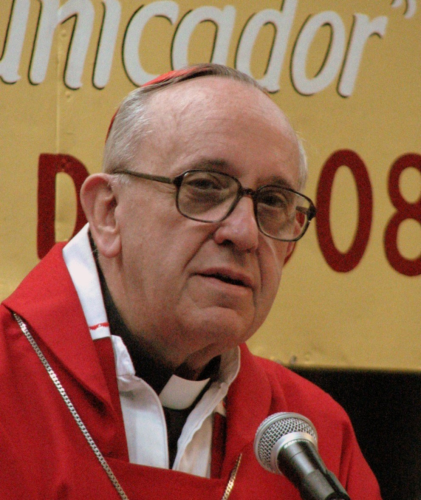Mar 13, 2013
Pope Francis sets precedents, faces challenges: DePaul professors
Pope Francis sets precedents, faces challenges: DePaul professors
CHICAGO — The election of Cardinal Jorge Mario Bergoglio as Pope Francis drew several observations from faculty members at DePaul University in Chicago, the largest Catholic university in the United States.
“This selection is strong on symbolism: He’s a Jesuit claiming the name of Francis though historically the Franciscans were a rival school of thought and practice in the Church. He also is a person known for personal piety and humility being selected for an office steeped in pomp and ritual,” said Michael Budde, chair of Catholic Studies in the College of Liberal Arts and Social Sciences. “At the same time, too much can be made of the contrasts — Jesuits have been among the most committed to the poor and oppressed in the modern world, having generated more than their share of saints and martyrs while defending those at the bottom,” said Budde.
“Much of the reporting on and around the conclave reminds me of the coverage given to a royal wedding — sort of a quaint pleasure, focusing on arcane rituals and spectacle as part of a novelty story. I understand it, but I don't think it does a great deal to advance popular understanding of Catholic Christianity and what it means in the contemporary world,” he said.
Patrick Callahan, a professor of political science, said “The selection of Cardinal Bergoglio underscores the global — that is the Catholic — character of the church. This might be sobering for many American Catholics who think that producing public opinion data about what American Catholics think, and do, about controversial subjects — at least in rich countries — such as contraception, gay marriage, ordination of women and married people is not at all definitive of what Catholics around the world think.
“One criticism many had of Pope John Paul II and Pope Benedict XVI is that they have centralized too much control in Rome, more than had been hoped after Vatican II. Paradoxically, if Francis is to have a transformative impact, he will need to consolidate even more power,” said Callahan. “Still, given his age and lack of familiarity with the inner workings of the Vatican, suggests that he can only begin a transformation process. His successor likely will be more important to this process.”
A visiting assistant professor of Catholic Studies, Alexander Stummvoll, remarked, “I am impressed by his evangelical zeal. He is the first pope to pray the ‘Our Father’ and ‘Hail Mary’ during his initial address as pope while also offering moments of silent prayer more typical of an evangelical style. His talk came across as very personal, in sharp contrast to Pope Benedict's short address.”
Stummvoll added, “He is known for his personal modesty and leads a very simple lifestyle with no clerical attitudes. But the question remains: Is he tough enough to govern and reform the Roman Curia?”

Pope Francis I
